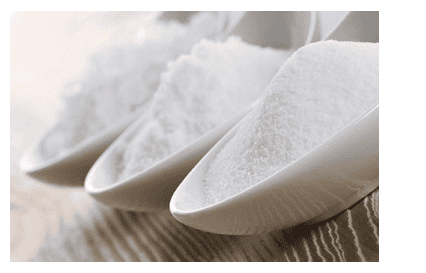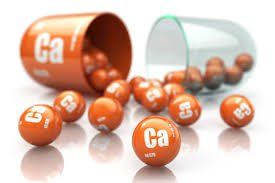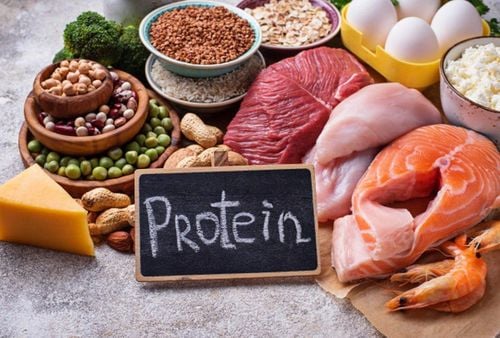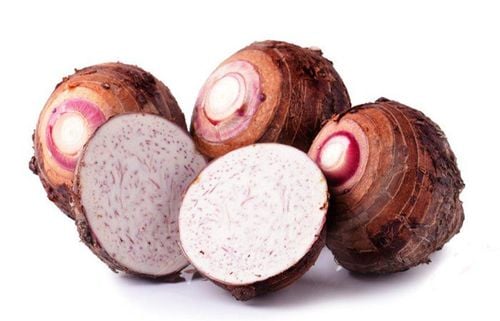This is an automatically translated article.
Adequate, balanced meals include eating the right foods in the right quantities to provide energy and nutrients for the body to function. The exact amount you need depends on a range of factors including your age, gender, height, and activity level. The article below gives us tips to eat delicious, healthy, and nutritious.
1. Base your meals on starchy carbohydrates
Starchy foods include potatoes, bread, pasta, rice and noodles.
If possible, choose whole grains or higher fiber varieties with less fat, salt and sugar, or leave the skins on the potatoes.
Starchy foods contain less than half the calories of fat per gram.

Ngũ cốc nguyên hạt có nhiều chất dinh dưỡng có lợi
2. Eat lots of fruits and vegetables
Eat nutritiously at least 5 different servings of fruits and vegetables each day because they contain many different combinations of vitamins and minerals.
Fresh, frozen, canned, dried and fruit juices all count but keep in mind that unsweetened juices and/or smoothies should be limited to a total of 150ml per day and dried fruit should is limited to about 1 tablespoon (30g) per day and eaten with meals.
You can try grated vegetables like carrots and bok choy into a Bolognese sauce or add more vegetables to a homemade tomato sauce and mix.
3. Eat more fish, including a portion of oily fish
Aim to eat at least two servings of sustainably sourced fish per week, including one serving of oily fish (one portion weighs about 140g cooked).
Oily fish, such as sustainably sourced salmon, sardines, mackerel and trout, are among the only natural food sources of vitamin D, which is important for bone health. Fish oil is also our main source of omega 3, which is important for heart health.
Choose from fresh, frozen, smoked and canned fish, but remember smoked and canned fish can be high in salt, so check food labels to choose less salt.

Trong cá hồi chức omega 3 có lợi cho sức khỏe
4. Cut down on saturated fat and sugar
Swap saturated fats, found in butter, buttermilk, chocolate, cheeses and fatty meats, with unsaturated fats, found in vegetable oils, nuts, seeds, oily fish and avocados, May help lower your blood cholesterol levels.
Too much sugar, especially between meals, can increase the risk of tooth decay and will add calories, so cut down on sugary foods and drinks like high-sugar cereals, cakes, biscuits and sugary drinks. If you have a sweet craving, you can try eating fruit with yogurt instead, helping you achieve 5 days a day!
Use food labels to help you choose foods lower in saturated fat and sugar by choosing varieties with more green and amber colors on the front of the package label.
5. Eat less salt
Adults should eat no more than 6g (1 teaspoon) per day and children should eat less. Eating a lot of salt has been linked to an increased risk of developing high blood pressure, putting you at higher risk of stroke or heart disease.
Most of our salt intake comes from processed foods, not salt added during cooking or at the table, so always check food labels for salt content! When comparing foods, high salt content is more than 1.5g salt per 100g and low is 0.3g salt or less per 100g.
Try using more herbs, spices, citrus juice (lemon and lime) or vinegar to flavor foods so you can use less salt in your recipes.

Hạn chế ăn nhiều muối
6. Exercise and reasonable weight
The government recommends 150 minutes of moderate-intensity physical activity or 75 minutes of vigorous intensity for adults aged 19-64 and strength training at least two days per week.
Moderate intensity activities including cycling or brisk walking. High-intensity or vigorous activities include swimming and running. Muscle-strengthening activities include lifting weights, exercises with weights, or carrying heavy boxes or groceries.
7. Drink water
Try to drink 6-8 glasses of liquid a day. Water is the best choice as it hydrates you without adding extra calories to your daily intake.
Other good options include unsweetened tea and coffee, sugar-free beverages, and low-fat milk. Unsweetened fruit juices and smoothies count, but remember water intake should be limited to 150ml a day.
Alcohol doesn't count because it makes you pee more often.

Tăng cường bổ sung nước cho cơ thể
8. Don't skip breakfast
A healthy breakfast can provide fiber, calories, vitamins and minerals important for health.
Choose cereal, porridge or whole-wheat toast for a healthy start to the day.
Swap sugary breakfast cereals for whole grains like plain porridge, with no added muesli or whole grains.
Please dial HOTLINE for more information or register for an appointment HERE. Download MyVinmec app to make appointments faster and to manage your bookings easily.













